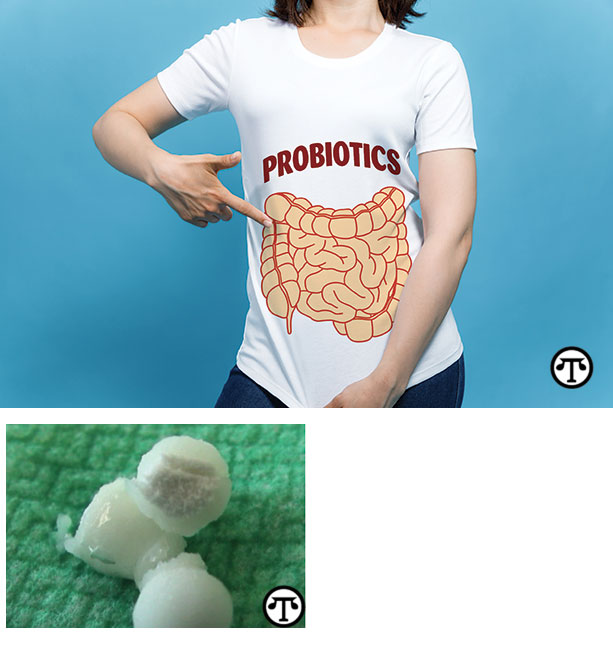
(NAPSI)-Though too small to see, probiotics can be a big deal when it comes to your health—and in some cases to your wealth, as well.
What Are Probiotics?
According to the National Institutes of Health (NIH), they’re live microorganisms that help your body function. For example, the bacteria normally in your intestine help you digest food, destroy disease-causing microorganisms, and produce vitamins.
The NIH contends probiotics might:
- Help maintain a desirable community of microorganisms
- Stabilize the digestive tract’s barriers against undesirable microorganisms or help inhibit their growth
- Help the community of microorganisms in the digestive tract return to normal after being disturbed (by, say, an antibiotic or a disease)
- Outcompete many of the undesirable microorganisms
- Stimulate immune response.
The Problem
Lifestyle challenges such as diet, aging, medications, stress, environment, alcohol and more, however, may contribute to digestive imbalance of essential beneficial bacteria. People who take antibiotics, in particular, should counter them with probiotics to replenish the “good bacteria” the antibiotic destroys along with the “bad” ones.
An Answer
That’s one reason many people supplement their original microorganisms with those in probiotic products. The NIH says these are the same as or similar to microorganisms that naturally live in your body. According to research by microbiologists, the average effective dose for humans is 10 billion colony-forming units (CFUs) per day—if properly delivered.
That’s not so easy. The CFUs you swallow have to survive stomach acid, bile, hydration, activation and other issues.
Doctors’ Advice
As Drs. Elizabeth C. Verna and Susan Lucak of Columbia University’s College of Physicians and Surgeons put it in the Society of American Gastrointestinal and Endoscopic Surgeons journal Therapeutic Advances in Gastroenterology, “A probiotic should be delivered in a formulation that is stable when stored. The colony number of bacteria and viability need to be reliable and they must survive the acid and bilious environment in the upper GI tract before they reach the small intestine and colon.”
Some supplement companies try to overcome this by stuffing many billions more bacteria in each capsule than you really need—and charging you for them. An excess number does not make for a better dose. You can pay a lot of money for all those probiotics, when you’re not really getting very many where you need them. Others use synthetic coatings made from waxes, shellacs and plastics.
Less Is More
One company, however, has come up with a way to protect you from overpaying by putting only the number of CFUs you need in a special delivery system.
The Multi-Step MAKTrek 3-D Probiotic Delivery System provides significant safeguards designed to ensure better survival of the beneficial probiotic bacteria.
The 3 Ds
1st D—Two-Step Acid Protection: The probiotic bacteria are enrobed by an extract of brown seaweed called complex marine polysaccharides. Once blended, the final powder is encapsulated. When the capsule is swallowed, it comes in contact with stomach acid and dissolves. The complex marine polysaccharides form a secondary internal capsule protecting the probiotic cells until the bacteria are deposited in the lower bowel, which is where they need to be to gain the most benefit.
2nd D—In-Transit Buffering: This is an all-natural buffering system that helps to support the in-transit digestive environment condition.
3rd D—Additional Safeguards: The probiotic strains used are naturally equipped to handle exposure to common environmental elements that can make survival difficult for these beneficial probiotic bacteria.
Each balanced, once-daily capsule provides 10 billion CFUs of 12 different beneficial probiotic strains. The shelf-stable supplement, Greens First Daily Care, is non-GMO, vegetarian and free of gluten, soy, wheat, dairy and magnesium stearate.
Learn More
For further facts on probiotics and other nutritional supplements, call (866) 410-1818 or go to https://greensfirst.com/product-details/dailycare.
